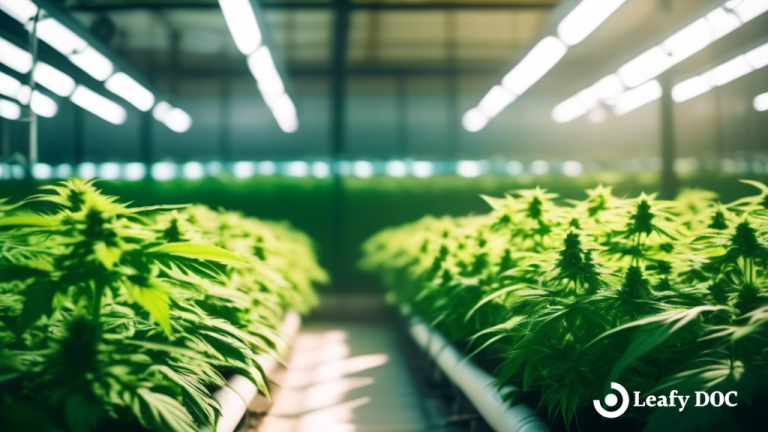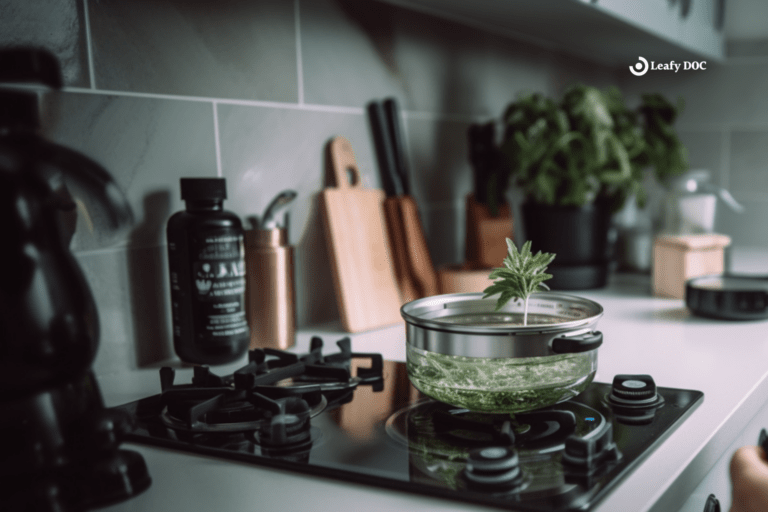Ulcers
What types of Ulcers can medicinal marijuana help with? Read below to find out.
What are ulcers?
Ulcers are open sores that can occur on internal and external parts of the body. They can be mild or severe. An ulcer is a type of crater-like wound and can develop outside or inside the body. Ulcers develop when tissue erodes, which has a variety of causes, but luckily there are successful treatment options. Ulcer symptoms can include pain, nausea, heartburn, or itching, depending on the affected area. Treatment may consist of acid reducers, antibiotics, antiviral drugs, lifestyle changes, and in extreme cases, surgery.
Types of Ulcers
There are seven primary types of ulcers: arterial, diabetic foot, esophageal, genital, mouth, peptic, and venous. Let’s learn about their causes, symptoms, and treatments.
Arterial
The causes of arterial ulcers include:
- Atherosclerosis
- high blood pressure
- Minor injuries that heal slowly
- diabetes
- kidney failure
- Vasculitis
Arterial ulcers develop on the lower legs, feet, or toes and are generally brown, black, yellow, or gray. These ulcers don’t bleed but are very painful.
If high blood pressure causes an arterial ulcer, you may need to make lifestyle and diet changes. Your doctor may prescribe oral antibiotics if the wound shows signs of an infection, such as swelling or discharge.
The leading causes of diabetic foot ulcers include:
- inadequate foot care
- Peripheral vascular disease
- Neuropathy
- high or low blood sugar levels
Diabetic Foot
A diabetic foot ulcer will appear as an open wound, commonly on the bottom of your foot. The injury may look like this:
- odor filled drainage
- tissue discoloration
- calluses
- swelling
- blisters
- continuous pain
Doctors typically prescribe antibiotics to treat diabetic foot ulcers. They may also need surgery to address restricted blood flow to the area or remove any calluses and dead or infected tissue.
Esophageal
The most common cause of esophageal ulcers is acid reflux. This condition occurs when stomach acid backs up into the esophagus and wears away the lining of the esophagus.
The symptoms of esophageal ulcers include:
- heartburn
- difficulty swallowing
- chest pain
- nausea
- vomiting
- excessive saliva
If you have an ulcer caused by GERD, your doctor will prescribe PPIs or H2 blockers that reduce the amount of acid the stomach produces.
If an infection causes your ulcer, a doctor may prescribe antibiotics or antiviral medications.
Making lifestyle changes, such as quitting smoking and drinking fewer acid-rich liquids, may benefit esophageal ulcers.
Genital
The leading cause of genital ulcers are sexually transmitted infections (STIs), including:
- herpes simplex virus
- syphilis
- Chlamydia
Another rare cause of genital ulcers is Behçet’s inflammatory syndrome. The symptoms of genital ulcers will vary depending on which STI caused them, but they can cause illness, fever, and itching. Doctors may prescribe antiviral medications, antibiotics, or pain relievers.
Mouth
Mouth ulcers are small lesions that develop in your mouth. The sores may be painful and swollen.
Treatment for mouth ulcers may include:
- topical corticosteroids
- anti-inflammatory medications
- antibiotic mouthwash
- avoiding certain foods
- pain relievers
The causes of mouth ulcers include:
- trauma to the mouth
- cuts or burns from eating
- a food allergy
- hormonal changes
- an iron or vitamin B12 deficiency
- a weakened immune system
- Crohn’s disease or celiac disease
- oral cancer
Peptic
There are two main types of peptic ulcers.
- Gastric ulcers-stomach
- Duodenal ulcers-upper part of the small intestine
There are two leading causes of peptic ulcers.
- Bacterial infection: Infection that can cause inflammation and damage your stomach linings.
- Nonsteroidal anti-inflammatory drugs (NSAIDs): NSAIDs, including aspirin and ibuprofen, are typically used to treat pain.
Some common symptoms of peptic ulcers include:
- stomach pain
- bloating
- heartburn
- nausea
- vomiting
Peptic ulcers can bleed, which can be severe.
If an ulcer is bleeding rapidly, symptoms can include the following:
- black, sticky stool
- bloody stool
- bloody vomit
- fainting
Treatments for peptic ulcers include:
- Proton pump inhibitors (PPIs): PPIs block acid production in your stomach, allowing the ulcers to heal.
- Antibiotics: If H. pylori caused your ulcer, you need antibiotics to eliminate the infection.
- NSAID cessation: If NSAID causes the ulcer, talk with your doctor about alternative pain medications.
Venous
Two conditions that affect your veins cause venous ulcers.
- Chronic venous insufficiency: The leg veins are not effectively sending blood to the heart
- Venous hypertension: There is increased pressure in the veins
Venous ulcers are irregular, shallow open wounds on the legs that form over the ankle and lower leg bones.
Symptoms of venous ulcers include:
- brown discharge
- rash
- pain
- itchy skin
- varicose veins
- spider veins
- inflammation
Treatment for venous ulcers includes:
- Compression therapy involves using hosiery or bandages to apply gentle pressure to the leg, promoting better blood flow.
- Wound care: Keeping the wound clean and avoiding infection is essential to promote healing
Can Medical Marijuana Help?
The cannabinoids found in the cannabis plant can activate the endocannabinoid system in the human body and may help many chronic issues, including the development of ulcers. Cannabis activates CB1 receptors in the central nervous system and CB2 receptors in organs, muscles, and tissues. Cannabinoids can directly influence our ability to maintain homeostasis.
CB1 receptors are responsible for large and small bowel muscles and digestion in the intestines. Activating the CB2 receptors targets immune cells that can reduce intestinal pain and inflammation. Cannabinoids can even interact with other receptors influencing everyday gastrointestinal tract functions.
Timna Naftali conducted a study that followed thirty patients with Crohn’s and recorded their disease severity before and after cannabis use. Researchers found that many users could decrease inflammation medications, including steroids. Approximately three-fourths of participants said they experienced reduced symptoms and daily bowel movements.
Another study discusses the cannabis plant’s potential for helping to relieve digestive inflammation and its anti-inflammatory properties by activating the endocannabinoid system, a fat-based system of self-made neurotransmitters. When CB2 receptors line the intestinal tissue, a P-glycoprotein transmitter will help decrease the body’s inflammatory and autoimmune responses.
Recent studies on the endocannabinoid system suggest that many IBS patients may have clinical endocannabinoid deficiency (CED). An ongoing theory is that these deficiencies could come from genetics, injuries, and diseases.
Research on obese mice has proven a connection between the microbiome, gut, and brain. The microbiome of the small intestine, large intestine, and brain health are all crucial factors for IBS patients. The obese mice given doses of THC had improved microflora in the gut compared to mice who received the placebo.
MMJ Patients with Ulcers may see the following benefits:
- Pain management improvement
- Decreased anxiety and depression
- Appetite Increase and regulation
- Reduced need for regular steroid use
- Decrease in diarrhea
Medical marijuana is commonly found to possess significant anti-inflammatory and antioxidant properties, which can help with chronic pain management reasonably quickly. Cannabinoid receptors bind to the brain and peripheral nerve cells and help regulate how you see and feel the pain to reduce symptoms. Medical cannabis, therefore, as opposed to other drugs, appears to be an excellent alternative to treat and manage pain due to inflammation.
Recent studies from medicine and health sciences professionals suggest that certain cannabis products may effectively treat an overactive immune system. It can connect with the cannabinoid receptors of the body to combat the proinflammatory t-cell responses needed. It has been used to treat rare skin conditions, Crohn’s disease, neuropathic pain, particularly autoimmune disease, inflammatory bowel disease, acute psychosocial stress, and many other conditions. As homeostasis is maintained in the body, you will be less likely to develop future ulcers. We recommend talking with your doctor about MMJ options for ulcers if you are looking for a new treatment plan.
Last Updated: June 14, 2024
Get Your Medical Card
Connect with a licensed physician online in minutes
Table of Contents
Keep Reading
-
Managing Sleep Disruption As A Side Effect Of Medical Marijuana
Struggling with sleep disruption from medical marijuana? Find out how to regain a peaceful night’s rest and optimize your cannabis journey. Click here for essential tips and tricks!
-
Exploring Hydroponic Systems For Cannabis Cultivation
Unleash the potential of your cannabis cultivation with cutting-edge hydroponic systems. Learn how to grow bigger, better plants indoors with expert tips for success. Click now to revolutionize your growing process!
-
Cannabis For Food Poisoning: Relief Or Risk?
Discover the surprising potential of cannabis for food poisoning relief. Is it a game-changer or a risky remedy? Uncover the truth now!



